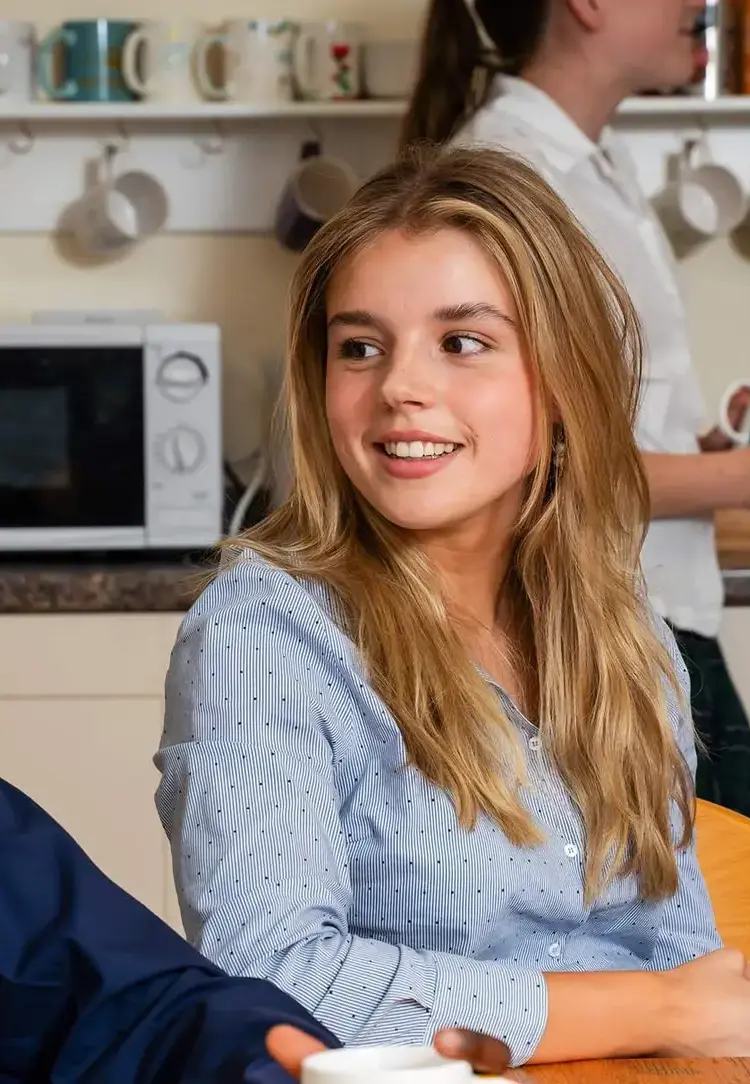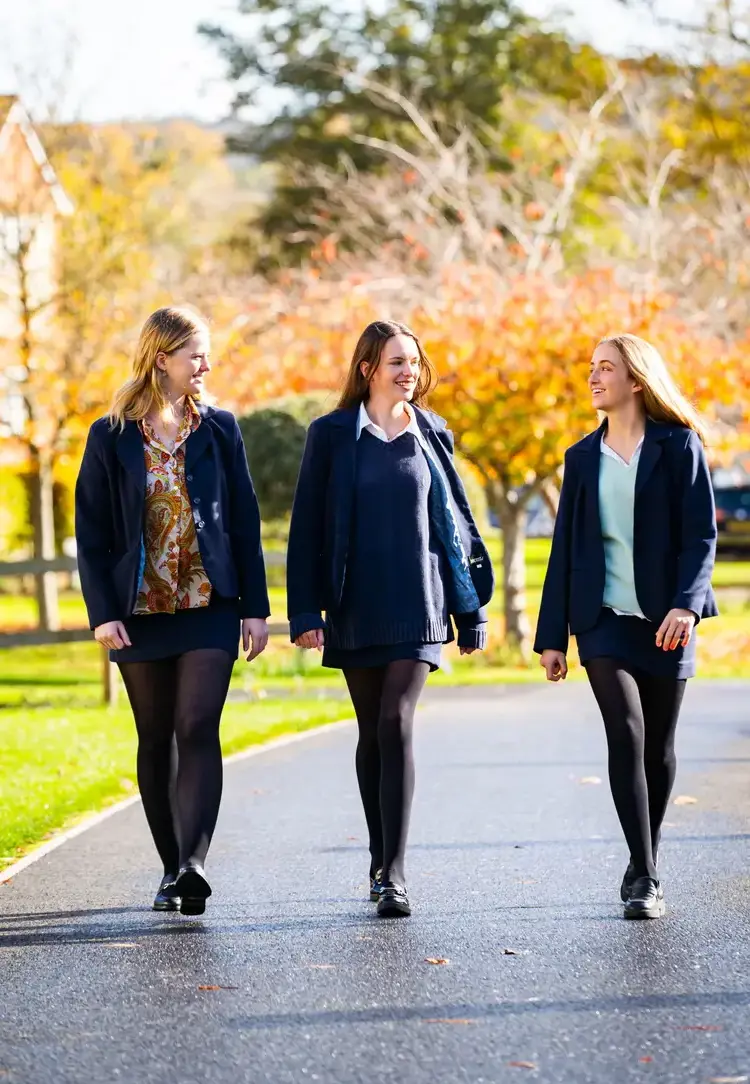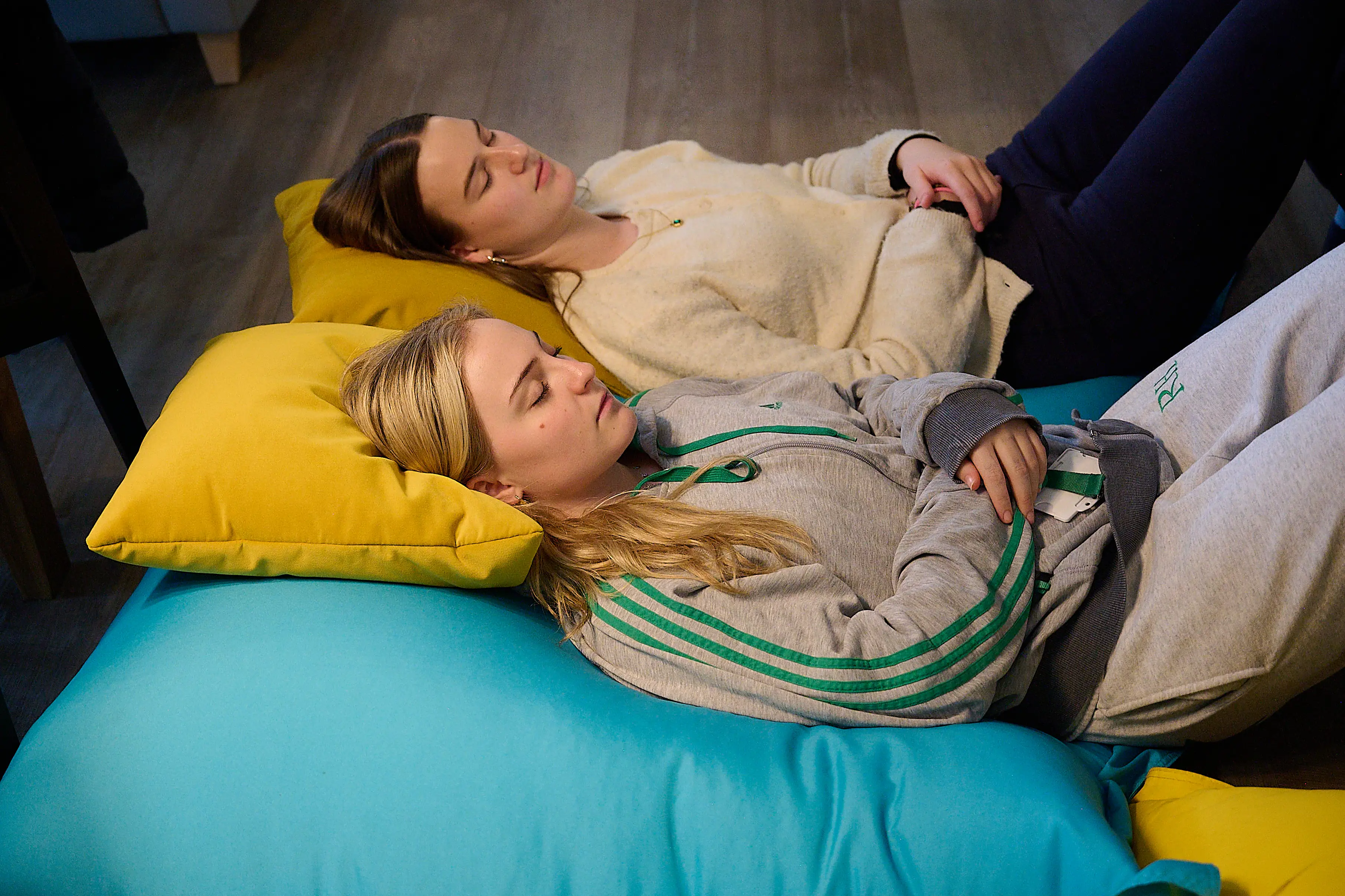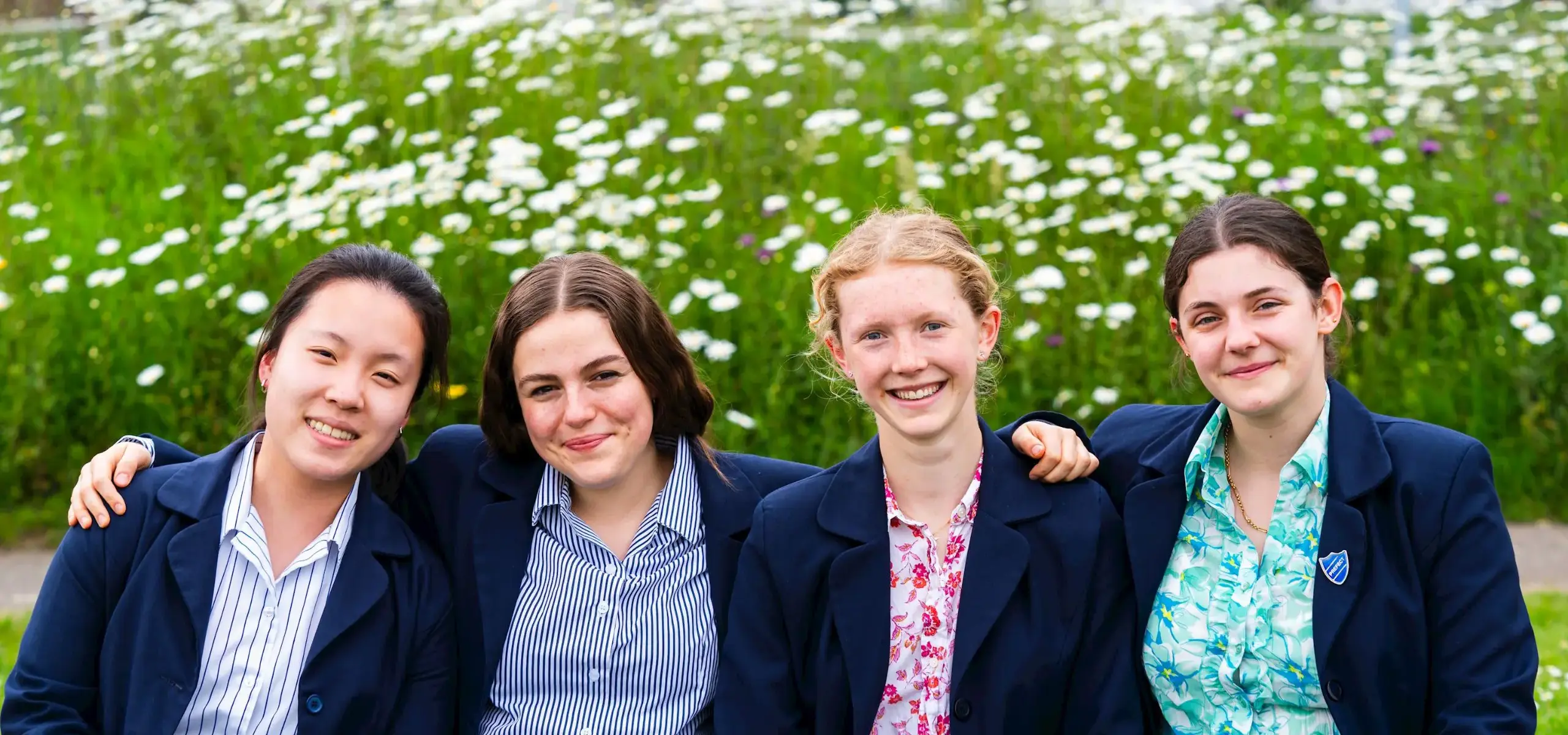Sleep Talking
By Mrs Jessica Briggs, Senior Deputy Head (Pastoral)
Counting sheep might be a classic remedy for helping you to fall asleep, but recent studies reveal that nearly one-third of adults are still struggling to catch those elusive Z's.
From the earliest stage, parents worry about how much sleep their newborn is getting. ‘Does he sleep through?’ or ‘Do you leave her to self-soothe?’ are just some of the questions facing parents of newborns. Competitive baby-sleeping could be an Olympic Sport. 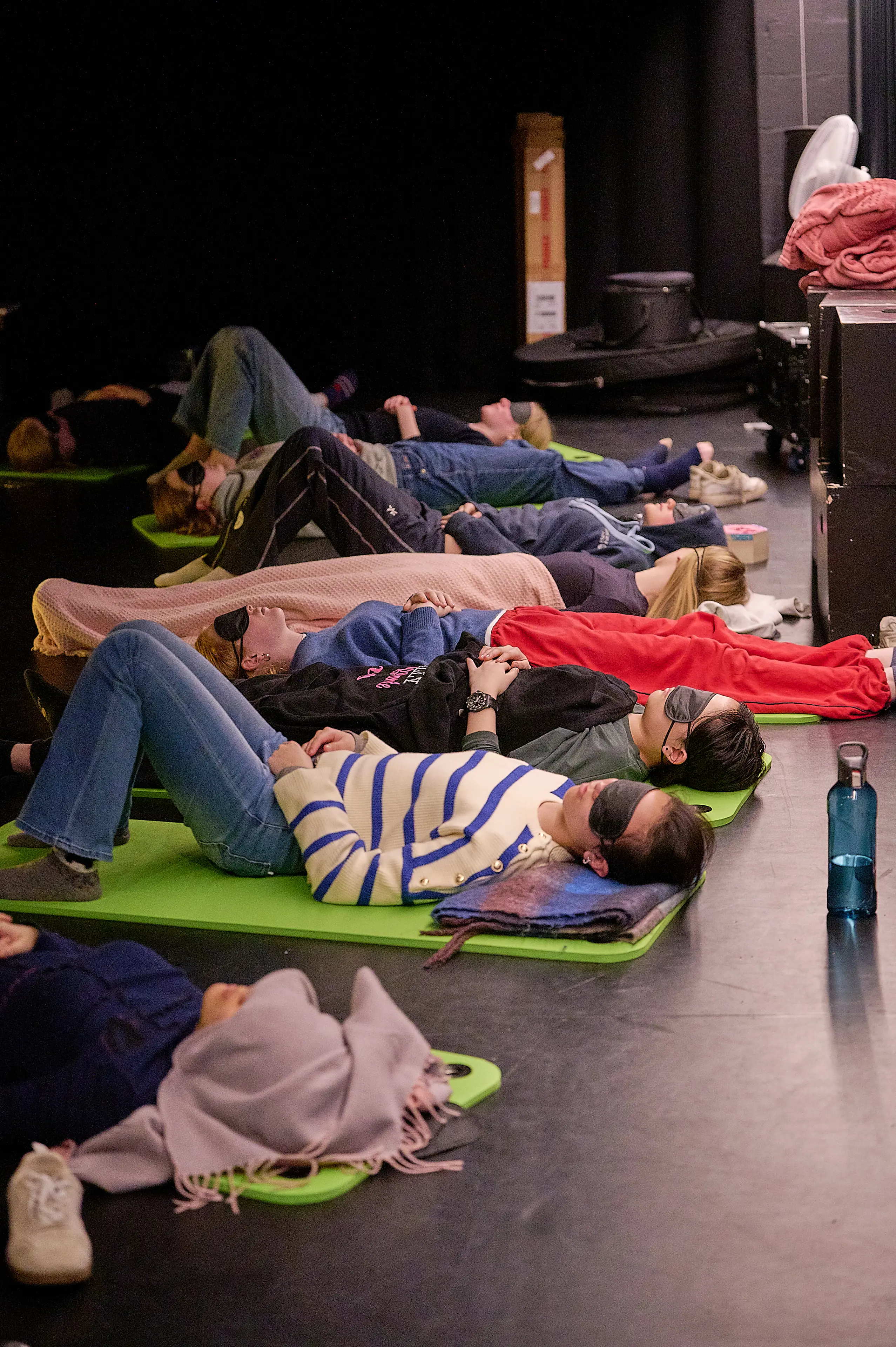
It should therefore come as no surprise that teenagers often don’t get enough shut eye, finding it hard to switch off from their busy lives and recharge their batteries. The problems underlying this are many. Anxiety or worry about an upcoming test, interaction with a friend, perceived slights can all play on teenagers’ minds. The lure of their smartphone, pouring blue light into their retinas at midnight, tricking their body clocks and disrupting their circadian rhythms. Not having done enough revision, having done too much revision and not taking enough breaks. Friendship problems. Home-life problems. All, and more besides, prevent teens from switching off at the end of their day, and getting enough sleep to help them go again the next.
In my position at Sherborne Girls, part of my remit is how we as a school can help the girls understand these issues, confront them and help themselves to become better sleepers. School isn’t solely about academic grades or sporting prowess. We seek to ensure that when a girl leaves us at 18, she is ready to face the world and all its rewards and challenges head on – and good sleep hygiene is a crucial aspect of achieving this.
At Sherborne Girls, we explicitly teach the girls about the crucial steps to better sleeping, devoting a whole week each half term to help them better understand how to switch off. Using resources from The Teen Sleep Hub and The Sleep Charity the girls participate in a range of sleep inducing activities from sound baths to yoga, sleepy time teas to mindful colouring in. If you have a teen, or you are one of the third of adults who struggle with sleep, then keep reading to unlock some of our top tips for better sleep. (If you’re reading this in bed, then try to keep eyes open just that little bit longer...)
Routine, routine, routine. Many people think that sleep routines, carried out every day, are just for small children. Not so! Try and do the same things each night to prepare your mind and body for sleep.
Turn off the tech. As hard as it might be (and I often slip up on this one myself) don’t look at your phone, tablet or laptop in the hour running up to your bedtime. Doom scrolling on Instagram or just one more dance trend on TikTok might be tempting but it’s common knowledge that the blue light emitted from the screens lowers your natural levels of melatonin, artificially keeping you awake for longer.
Sleep environment. A bedroom should be a calm space (time to declutter!), not too warm, with a supportive pillow and yes, banish those electronics from your bedside table. Bedrooms should be for sleeping.
Exercise. Running, walking, the gym, a swim, whatever your sport is, taking some regular exercise will help you sleep better. But remember, don’t exercise too close to bedtime, you need time to...
Relax! Relaxation and mindfulness can be a big help in getting ready to sleep. Taking the time to mentally separate yourself from the stresses of the day, be it a lesson you found hard or a friendship problem, can really help you to achieve better and more healthy sleep. Remember, that ‘sleeping on it’ really can help, but the key is to sleep and not dwell.
Hungry? Don’t reach for the sugary snacks and aim to not eat after 8.30pm. Almonds, bananas (high in potassium) sugar free cereal, some oatmeal and even dairy (cheese doesn’t actually give you nightmares) are all healthy snacks if you have the urge. Remember too that Coke (full-fat, Diet and Zero) all contain caffeine, so these and regular tea and coffee are a no-go from late afternoon onwards. Surprisingly, hot chocolate also often contains caffeine, so no more steaming cocoa at 9pm. Swap for sugar-free squash, ginger beer, and sleep-inducing teas like camomile or special blends available.
Finally, waking Up! Surprisingly to some, how you wake up affects the quality of your sleep the next evening. Aim to crack the curtains as soon as you wake up and try to wake at the same time each day, regardless of when you went to sleep. Lying around in a dingy bedroom might still be the norm for teenagers, but this won’t help you banish the demons of a bad night’s sleep. Getting up and out into the sunshine (or daylight...it is the UK after all) will help reset your body clock for the day ahead.
These are some of the ways in which we encourage good sleep at Sherborne Girls. Sleep Week has become a firm favourite, with many of the girls carrying on the good practices they’ve been taught independently throughout the rest of the year. Quality sleep is the foundation of our physical and mental well-being, influencing everything from mood to cognitive function so embrace the power of good sleep, and unlock your full potential every single day.




